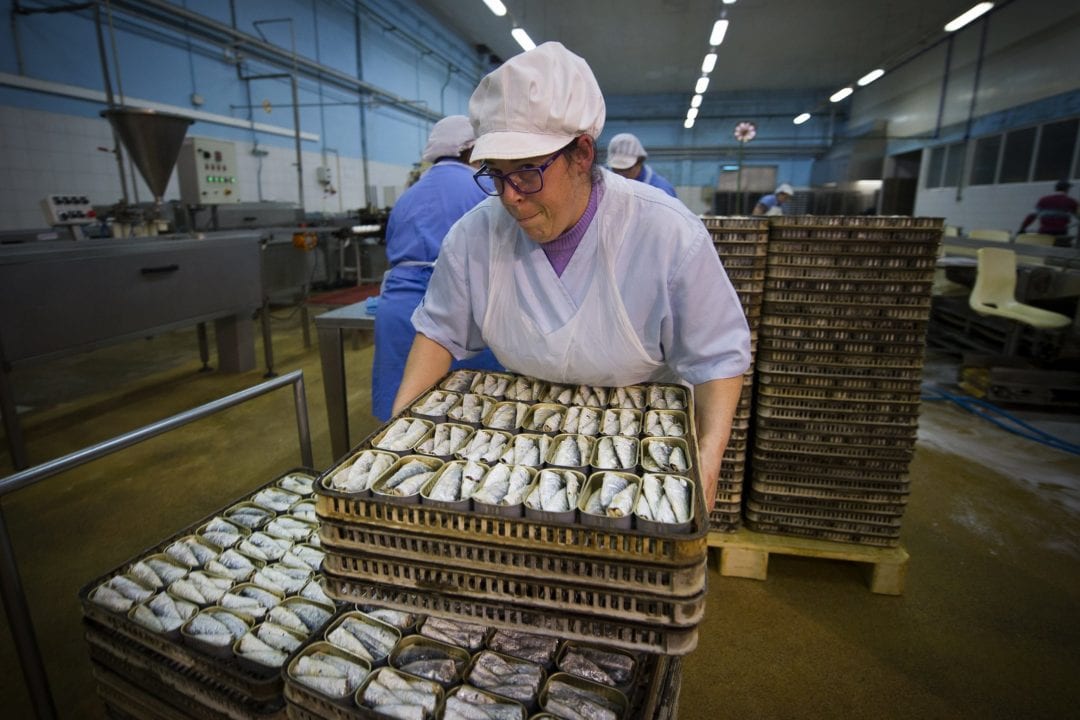Hot flashes, fatigue and, of course, changes to your period. The menopause can be a trying time for many women—but for some it can have serious health implications. These are the women, researchers think, that might benefit from a study investigating diet and the timing of menopause.
Researchers have linked certain foods to a delay in the start of menopause in a study including data from more than 14,150 women in the U.K. But, outside experts caution that women should not change their diets just yet. The results were revealed Monday in a study published in the Journal of Epidemiology and Community Health.
The team linked oily fish consumption intake to a three-year delay in menopause. Legumes including peas and green beans were also associated with a delay. Diets high in carbohydrates like refined pasta and rice, on the other hand, were linked to menopause starting a year and a half earlier than average.
The researchers used 51—the average age U.K. women start menopause—as a yardstick. In the U.S., the National Institute on Aging advises that menopause usually starts anywhere between age 45 and 55, and lasts about seven years.
Recommended Slideshows
The team collated information about women’s reproductive history, health and diet in an initial survey of more than 14,150 women, and in a follow-up survey four years later. More than 900 of the women aged between 40 and 65 had begun natural menopause during this interval.

The results could have implications for women at risk of a difficult menopause, Janet Cade, a professor of nutritional epidemiology and public health at the U.K.’s University of Leeds, explained in a statement. “A clear understanding of how diet affects the start of natural menopause will be very beneficial to those who may already be at risk or have a family history of certain complications related to menopause,” she added.
See all of the best photos of the week in these slideshows
Read more: Period pain misdiagnosed as digestive illness leaves British model with pus-filled Cysts and early menopause
This research adds to a growing body of evidence suggesting that food may have an impact on the timing of menopause. A 2017 U.S. study, for example, linked foods high in vegetable proteins—including whole grains, soy and tofu—to a lower risk of early menopause.
“There are a number of causes that have been considered for the relationship between age and start of menopause, such as genetic factors or behavioural and environmental exposures. But there are fewer studies that look at the impact of diet,” lead study author Yashvee Dunneram, a postdoctoral researcher also at the University of Leeds, said in the statement. The team took factors including weight and use of hormone replacement therapies into account, but could not consider genetic factors.
Experts caution that women shouldn’t rush to change their diets as the result of this particular study. Saffron Whitehead, an emeritus professor of endocrinology at St George’s University of London said that, although the approach is “interesting,” most of the results are not strong enough to draw any firm conclusions. “I am not yet convinced that diet alone can account for the age of the onset of the menopause,” she said in a statement. “There are too many other factors involved.”
Read more: Beer for women claims it can help with menopause, but science says you’re just drunk
Channa Jayasena, a clinical senior lecturer and consultant in reproductive endocrinology at Imperial College London, added that the study did not provide the right kind of evidence to encourage women to change their diets. “It is tempting to speculate that this provides a recipe for delaying menopause. Unfortunately, a big limitation of these observational studies, is their inability to prove that dietary behaviour actually causes early menopause,” she said in the statement. “Until we have that type of proof, I see no reason for people to change their diet.”
This content was originally published here.







